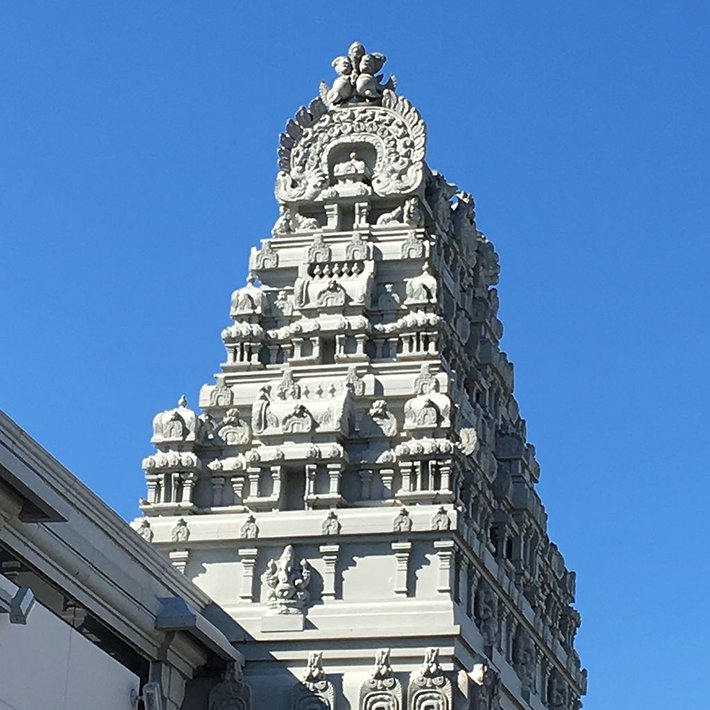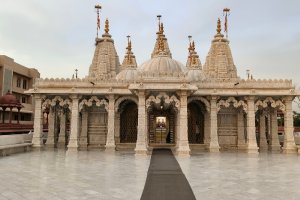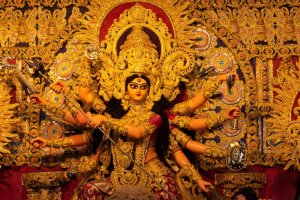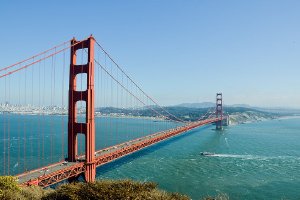Known for its dairy products, beer and cold winters, the Midwestern state of Wisconsin seems to be an unlikely place for nurturing houses of worship devoted to Hinduism and Jainism, two of the world’s most ancient religions.

As it turns out, however, one small town in America’s Dairyland—Pewaukee—is home to four expansive Hindu and Jain temples, including two that have the distinction of being the first of their kind in the state.
Those pioneering houses of worship stand on 22 acres of hilly land that were in “the middle of nowhere” when the Hindu and Jain temples were built in 2001, Sarvesh Geddam, the secretary of the two congregations, told Religion News Service in a September 9 article.
Today, the temples stand against the backdrop of a vast commercial landscape in Milwaukee’s far-west suburbs, an area dotted with fast food restaurants and military surplus warehouses.
Over the years, two more Hindu temples were built in Pewaukee—one devoted to Shirdi Sai Baba, a 20th-century guru who has a fairly wide following in India, and the other to Bochasanwasi Akshar Purushottam Swaminarayan Sanstha (BAPS), a larger denomination that also follows gurus and is known for its majestic temples.
The temples were constructed two decades ago at a time when Pewaukee showed little or no sign of Indian culture. That the suburbs of Wisconsin are home to followers of millennia-old faiths such as Hinduism and Jainism is something many outsiders are likely to find curious if not outright mind-boggling even today.
As it happens, Wisconsin’s population of Indian immigrants and their descendants is the second largest of any minority group from Asia after the Hmong, an ethnic group primarily from China and Southeast Asia.
In fact, according to Wisconsin’s Asian American and Pacific Islander Health Forum, the population of ethnic Indians in the state has grown by more than 80 percent since the 2000—2010 U.S. census.
It is a testament to the openness of the Midwest that it has extended to the followers of Pewaukee’s four Hindu and Jain temples what other immigrant groups have historically received: “space to call their own,” in the words of the Religion News Service article.
For its part, Pewaukee is a microcosm of what might be called Indian America: Since the 1965 Immigration and Nationality Act, which ended America’s long-standing policy of limiting immigration based on national origin, the population of Indian immigrants and their American descendants has swelled to nearly 2 million people—and more than half of them identify as Hindu.
“The earliest immigrants to arrive worshipped at makeshift shrines in people’s homes,” notes the Religion News Service article, pointing to the sea change that has since occurred: Not only does the U.S. have over 1,450 Hindu temples today, but in states such as New Jersey, California and Texas, where most Indian Americans live, there are enough followers of individual deities to justify building temples in their name.
The Pewaukee Hindu temple is a case in point: It features an array of marble statues honoring such popular deities as Krishna, Shiva and Ganesh—just a few of the dozens of representations of the divine.
“This is a pan-Indian umbrella,” Geddam said, referring to a national network of Hindu and Jain temples whose devotees he helps cope with the change of coming here.
“When I first came here, people said, ‘When you come to this country, you can’t continue to be in the old religion,’” recalled Kamal Shah, president of the Jain Temple in Pewaukee.
“Though our belief is very, very ancient, we are able to keep this up in America,” he said. “That is the biggest transformation.”
_______________
From its beginnings, the Church of Scientology has recognized that freedom of religion is a fundamental human right. In a world where conflicts are often traceable to intolerance of others’ religious beliefs and practices, the Church has, for more than 50 years, made the preservation of religious liberty an overriding concern.
The Church publishes this blog to help create a better understanding of the freedom of religion and belief and provide news on religious freedom and issues affecting this freedom around the world.
The Founder of the Scientology religion is L. Ron Hubbard and Mr. David Miscavige is the religion’s ecclesiastical leader.
For more information visit the Scientology website or Scientology Network.


